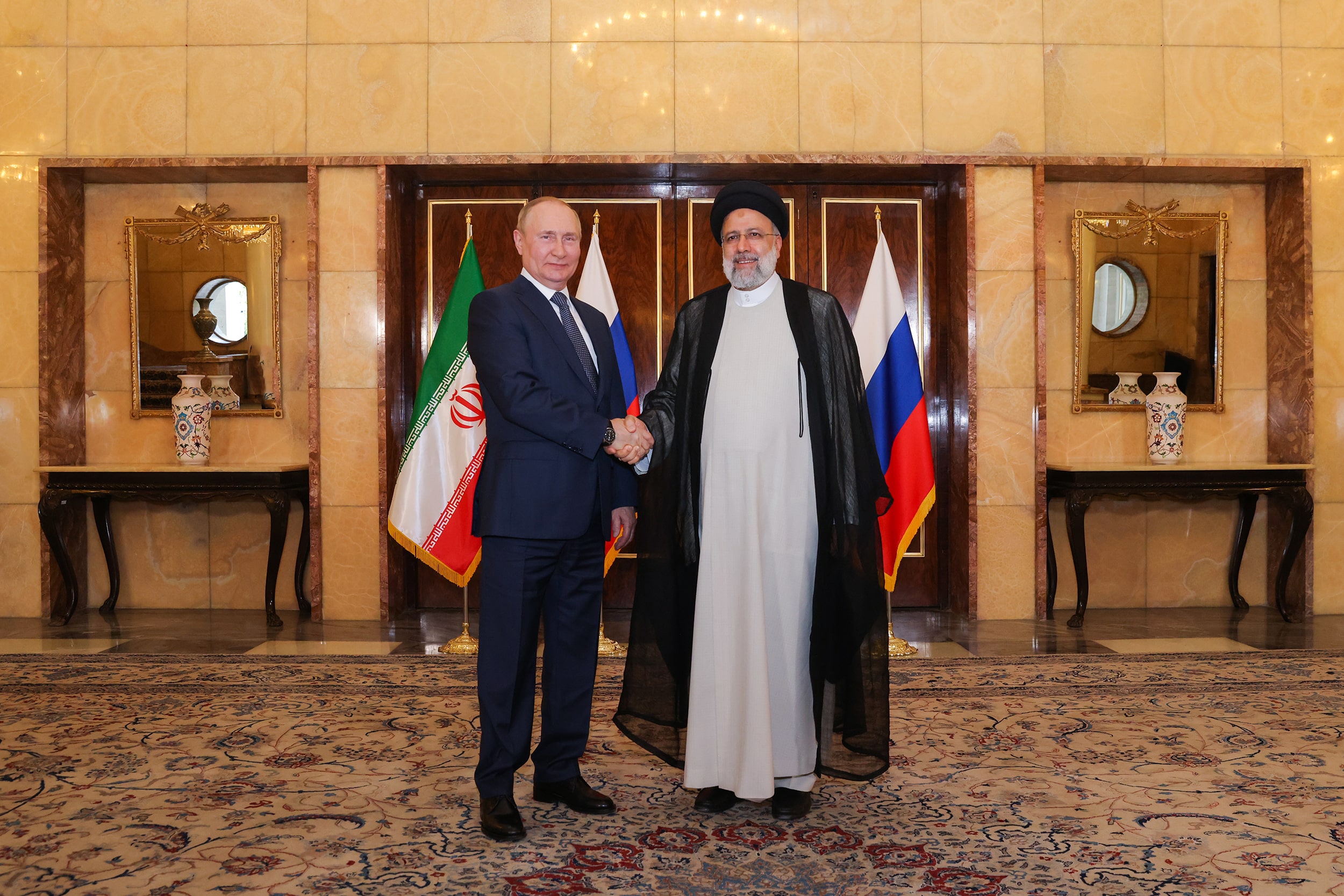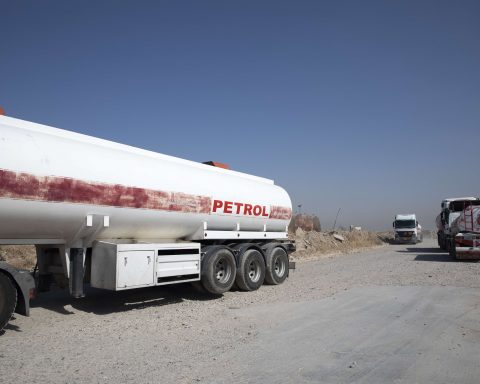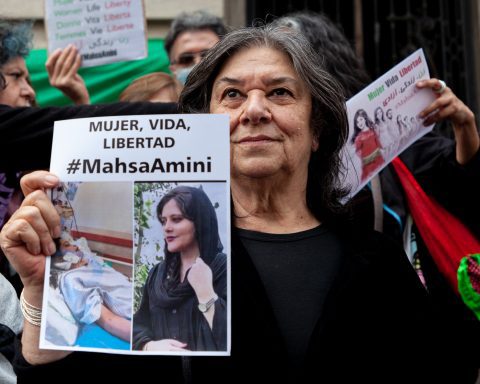Despite having the second largest natural gas reserves in the world, Iran is currently not a major player in the global energy market. Due to numerous sanctions, increasing domestic consumption and an inability to attract financial resources and technology needed to increase oil and gas production capacity pose serious risks to Iran’s energy security. While nuclear negotiations are continuing and the sanctions against Iran’s energy sector have not yet been lifted, the National Iranian Oil Company and Gazprom signed a 40-billion-dollar memorandum of understanding in July 2022. Last winter, Iran faced a daily deficit of 250 million cubic meters of gas and had greatly increased the consumption of polluting fuels in the country.
According to BP, Iran has been recognized as the fourth largest gas producer in the world this year with a production of 256.7 billion cubic meters, which is equivalent to 6.4 percent of the world’s total natural gas production in 2021. According to Mizanaft, in 2021, Iran’s natural gas production has grown by 3.1 percent compared to the previous year, from 249.5 billion cubic meters in 2020 to 256.7 billion cubic meters in 2020. According to the BP report, natural gas production in Iran has been on an upward trend since 2011, and the US sanctions imposed against Iran on the pretext of nuclear activities have not been able to stop or reverse the growth of gas production. Since 2011, natural gas production in Iran has grown by an average of 5.4 percent annually, which is more than twice the global average growth while the world’s natural gas production has grown by an average of 2.2 percent per year in this 10-year period.
Majid Chegini, the chairman of National Iranian Gas Company (NIGC), called the development of gas trade with neighboring countries as one of the most important goals of signing this memorandum. He said that the agreement includes cooperation on the construction of gas transmission lines and the desired projects in this field with neighboring countries such as the Russian Gazprom. Chegini also announced that Russia is willing to participate in the LNG projects as well as other projects. According to Mehrnews, Mohsen Khojste Mehr, the CEO of the National Iran Oil Company, pointed out that Iran’s oil industry needs an investment of 160 billion dollars to increase oil and gas production, and added that so far only 4 billion dollars’ worth of contracts have been signed with Russian companies for the development of seven oil fields. According to Reuters, in an effort to circumvent Western sanctions over its military campaign in Ukraine, Russia and Iran have discussed exchanging supplies for oil and gas as well as establishing a logistics hub, according to Russian Deputy Prime Minister Alexander Novak.
One of the biggest challenges of natural gas in Iran is the pressure drop in the South Pars field, which supplies 70 percent of the natural gas consumed in Iran. The South Pars field is shared between Iran and Qatar. The decline in the production of the South Pars field has started since 2019. Based on evaluations, the production of this field will decrease by 28 million cubic meters every year, and in 2023, the production of this field will decrease. It will reach 266 million cubic meters per day. In this regard, if Iran fails to do something, the country’s gas production will decrease by a third in the next 12 years. According to the former CEO of the National Iranian Gas Company, Meshkin Pham, an investment of 30 billion dollars is needed to prevent the drop in South Pars gas production. According to Mohsen Khojstemehr, the CEO of National Iranian Oil Company, 54 billion dollars of investment is needed to compensate for the drop in production of this field by setting up new gas fields, close to the security institutions, has stated that the plan of the Islamic Republic is to import 55 million cubic meters of gas per day “for various purposes” within the framework of the agreement recently signed between Iran and Gazprom. According to this report, the most important axis of the gas cooperation between the two countries is “Russian gas import and swap”, which seems to reach the contract conclusion stage sooner than other issues. In another part of its report, Fars News, which is close to the country’s security circles, mentioned the possibility of domestic consumption of gas imported from Russia, which seems to be the real reason for Iran’s negotiations with Russia.
In recent months, Iran has warned Europe that a difficult winter is ahead, and that Iran can increase oil exports to Europe if the sanctions are lifted, but the fact is that Iran needs foreign capital to increase its oil and gas production. To increase the pressure in South Pars to maintain the production capacity, Iran needs an important and vital action in the world’s largest gas field with an investment of 15 billion dollars. Russia’s invasion of Ukraine caused Europe’s energy security to face a serious risk. If Iran was not sanctioned, it could have played a mysterious role in Europe’s energy security. Considering the current situation, the Raisi administration is seeking to import natural gas from Russia to solve the root problems of Iran’s energy industry. Russia and several interest groups are also trying to justify this decision of the government. If this plan is implemented, it should not be expected that Moscow will agree to the re-export of Russian natural gas through Iran, and the positive point of this plan can be the reduction of greenhouse gas emissions in Iran in the power plant sector.
According to the South China Morning Post, Iran is being compelled to further discount its already low-cost petroleum as a prominent ally expands its presence in the crucial Chinese market. As Moscow looks to maintain flows in the wake of the backlash from its invasion of Ukraine, China has grown to be a significant market for Russian oil. In one of the few remaining markets for its petroleum shipments, which have been severely restricted by sanctions, this has boosted competition with Iran.
To maintain its share in the Turkish and Iraqi energy markets, Iran needs to increase its natural gas production capacity and manage domestic consumption. Increasing the production capacity requires the attraction of foreign financial resources and advanced technology, and this requires both the new nuclear agreement and the approval of the Financial Action Task Force (FATF). Importing excess natural gas from Russia will not solve the many problems of Iran’s energy industry, including the crisis of natural gas and electricity. Both Iran and Russia are facing Western sanctions. Energy export plays an important role in Russia’s foreign policy. In the past years, Russia had also invested in Iran’s energy industry, and these investments were made in oil and gas fields that do not threaten Russia’s target markets. Tehran cannot expect that if the 40-billion-dollar memorandum with Peron Gas is implemented. In the investor fields, Moscow is not interested in threatening its market share in the future by Iranian oil and gas exports.
By finalizing negotiations to resuscitate by the UN Security Council, Iran expects to meet part of its needs for foreign investment. The nuclear negotiations came to an end in late March without reaching a resolution on restarting, and it is still uncertain whether sanctions would be lifted. In any scenario, it will take time for the sanctions against Iran’s oil and gas industry to heal. Even though Moscow is reluctant to lose market share due to the Ukraine issue and that the present rise in energy cooperation is only temporary, Iran and Russia will use the same strategy to circumvent sanctions. Tehran shouldn’t count on improving Iran-Russia energy relations to enable it to secure the capital and technological support required for its oil and gas projects. If a new nuclear deal is reached and sanctions on Iran are lifted, Russia can invest in Iran’s oil and gas fields with the aim of controlling export routes, but Russian companies cannot meet all the needs of Iran’s energy industry.














